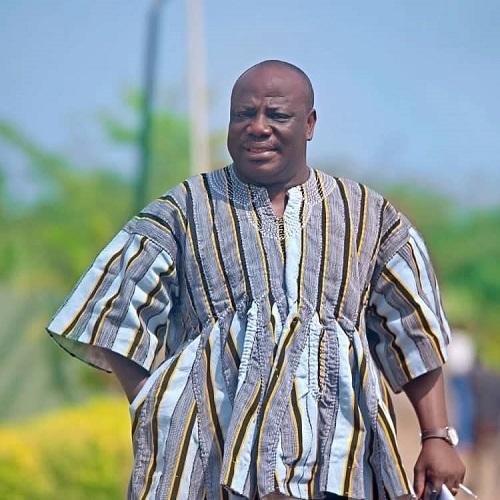News
HPV Vaccine Not Cause of Infertility — Health Expert
As Ghana rolls out the Human Papillomavirus (HPV) vaccine for girls aged nine to 14 years, health officials have urged parents to disregard rumours that the vaccine can cause infertility.
The District Director of Health Services for Awutu Senya, Dr. Felix Gerald Kwaning Darbbey, says such claims are false and intended to discourage families from protecting their daughters against cervical cancer, one of the most common and deadly cancers among Ghanaian women.
“There is no scientific evidence anywhere that the HPV vaccine causes infertility. On the contrary, the vaccine prevents diseases that can cause infertility such as advanced cervical cancer,” he explained in an exclusive interview with The Spectator.
He said countries that introduced the vaccine over a decade ago have “seen no link to fertility problems,” adding that assertions that the vaccines may encourage early sexual initiation among girls are also unfounded.
“These myths seek to distract people from the issue, which is protecting our daughters from a preventable cancer. It is not about encouraging sex, it is about safeguarding the health of our girls,” Dr. Darbbey asserted.
He urged parents and caregivers to support the vaccination campaign by getting their girls vaccinated before they are exposed to HPV, which could affect them later in life.
“Parents should see this as a gift of protection for their daughters. The HPV vaccine is not just about today, it is about the future.
“A nine-year-old girl may not understand the benefit now, but what we are doing is giving her the chance to grow into a healthy woman, free from the fear of cervical cancer. This is a transformational moment for Ghana’s health system; let us all play our part to protect the next generation of women,” he said.
Ghana records more than 3,000 new cervical cancer cases each year, leading to about 2,000 deaths, according to the Ghana Health Service (GHS).
The World Health Organisation (WHO) recommends the HPV vaccine as one of the safest and most effective preventive tools in the world to reduce the global burden of cervical cancer.
Over 140 countries, including 28 African nations, have so far rolled out the vaccine.
By Abigail Annoh
Join our WhatsApp Channel now!
https://whatsapp.com/channel/0029VbBElzjInlqHhl1aTU27
Hot!
Minority opposes proposed Telecel-AT merger, describes deal as ‘Unconscionable’

The Minority in Parliament has strongly objected to any planned merger or partnership between the government and Telecel, describing the deal as “technically, operationally, and financially unconscionable.”
Ranking Member on the Communications Committee, Matthew Nyindam, raised the concern during a media briefing in Parliament.
He questioned why both the Minister of Communications and Telecel would publicly announce a merger and then suddenly go silent on the matter.
“We object to any deal with Telecel by way of merger, absorption, or acquisition. This is a scheme to dispose of a national asset to fill private pockets,” Mr. Nyindam stated.
He argued that Telecel has not demonstrated any special technical or operational expertise that staff and management of AT (formerly AirtelTigo) do not already possess.
According to him, Telecel had earlier promised to invest $500 million after acquiring Vodafone Ghana but failed to do so, a situation he fears could repeat itself if the government allows another deal.
Mr. Nyindam claimed that Telecel was already indebted to the tune of $400 million, adding that the company only seeks to benefit from AT’s over three million customers to expand its own base without making any real investment.
“The government must not surrender the capacity of a state-owned company to a private entity through majority ownership. There is no clear plan to protect the jobs and livelihoods of thousands of workers,” he stressed.
The Minority Caucus is therefore calling on the government to halt any discussions or agreements with Telecel regarding the proposed merger, insisting that the deal is not in the national interest.
News
Bryan Acheampong proposes 90-Day ban on Galamsey during campaign tour

Flagbearer hopeful of the New Patriotic Party (NPP), Bryan Acheampong, has called for an emergency 90-day suspension of all forms of mining in Ghana to help restore polluted rivers and water bodies.
He made the call during his campaign tour, where he engaged party members and residents on issues of national concern, including security, the environment, and responsible mining.
Mr Acheampong explained that the temporary ban should take place during the rainy season to allow the environment to recover naturally while the nation rethinks its mining practices.
“Let’s clear our water bodies and engage on how we can go back to mining. I’m not talking about a state of emergency, but mining, regardless of where, should stop now for the next 90 days,” he said.
He warned that illegal mining, popularly known as galamsey, continues to poison food sources and destroy farmlands, posing a major threat to public health and food security.
“If our food systems are being poisoned and we just look on because we prefer to make money, our people will not be around in a very short time to address the situation,” he cautioned.
Mr Acheampong urged government, miners, and local leaders to use the proposed 90-day period to develop a sustainable framework for responsible mining that protects both livelihoods and the environment.
By: Jacob Aggrey






